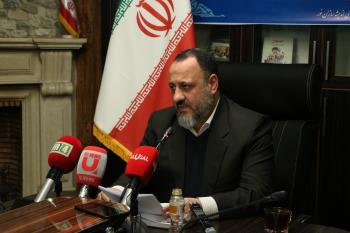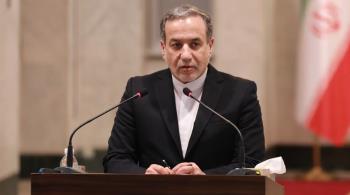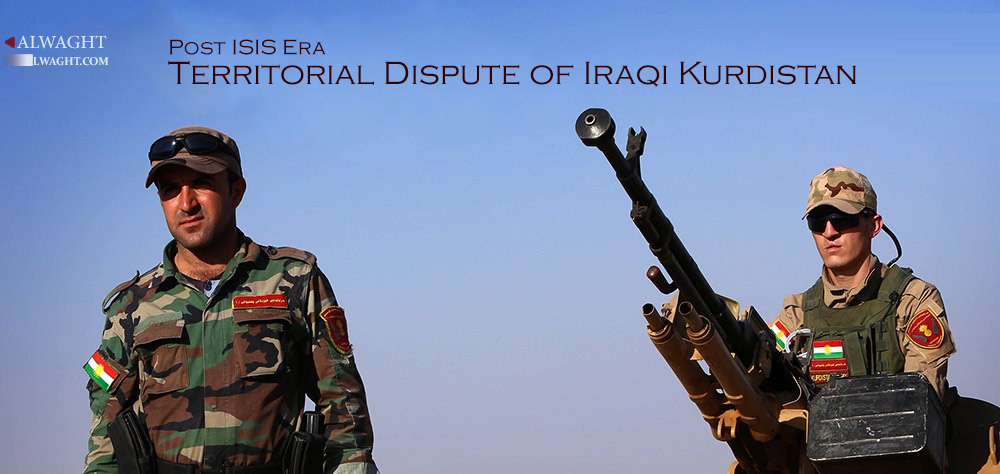Alwaght- Determining the boundaries of the Iraqi Kurdistan region is one of the main political and security challenges that is facing Iraq, which in the era after the military defeat of ISIS and liberalization of areas under its control, could start a major crisis in the future.
Now that the common war of the Iraqi Kurds and central government of Iraq against ISIS is at its peak, the significance level of this subject is so high that the leaders of the two parties are inevitably talking about it and expressing their opinions and demands. Even though this issue is a regional and international problem that countries within the region and transregional powers will not be indifferent towards, determining Iraq’s internal borders could be considered a matter that does not require intervention and response from other countries. That being said, their approach towards interacting with each other on this issue, could guide their behavior in dealing with the conflict of unity or division of Iraq, since both issues are naturally connected and linked to each other.
Through the years, the Iraqi central governments have officially recognized the Kurdish identity of Dohuk, Erbil, and Sulaymaniyah provinces and have agreed to the autonomy system (since 1970) and federal system (since 2005) in these provinces, but the Kurds are claiming other regions from Nineveh, Kirkuk, Salahuddin and Diyala provinces, In which the Kirkuk province and its central city with the same name are of great importance.
In 2005 while drafting the new constitution of Iraq, which was done with the participation and cooperation of Shiites and Kurds, the Kurds agreed to it under the condition of including a particular article in the constitution. Article no. 140 emphasizes that the fate of the disputed areas between the Kurdish region and the central government of Iraq should be determined through public referendum.
So far, despite the passage of close to ten years from the determined deadline, the principle has not been implemented by the central government. Within those years until ISIS’ dominance over parts of Iraq in 2014, there was always tension and conflict about the domination of those regions between the central government and Kurds, and measures such as deploying military forces were taken by both sides which in some regions almost led to military conflicts.
Also, in those years numerous efforts by various political, military, administrative, and displacement of population methods were made by the Kurds, to increase the statistics of Kurds living in disputed areas, especially in Kirkuk, so in case of a referendum, the results are in favor of Kurds. That being said expert studies showed, both provincial and regional referendums are going to be in favor of joining the central government.
The rise of the ISIS terrorists in 2014, their dominance over 40% of Iraq, and collapse of a large part of the Iraqi army and security forces, was a golden opportunity for Kurds to take control of the disputed areas. Through the past two years, the Kurds have largely achieved this goal, and taken control of most of those areas.
Now the Kurdish region, using the fight against ISIS and with the claim of managing its front, which is nearly a thousand kilometers long, has attempted to dig a ditch that traces the new borders of central government with the Kurdish region. Aside from military and operational usages, digging this ditch has political meaning behind it and sends the message that the Kurdish region has determined its borders and considers anything beyond those lines foreign, whether it is ISIS or the central government’s army.
In the future, the following ways exist for both sides in order to deal with this issue:
1. Talks and negotiations between both side and reaching an agreement about the continuation of the status quo, or return to the situation before 2014.
2. Referendum in disputed areas
3. The use of military methods, including many forms of military activities such as:
- Concentration of forces in the region and threatening to start military operations
- starting military operations and occupation of the targeted areas
It seems that both side are avoiding military conflict, and the possibility of it happening is very low, nevertheless, it is not completely impossible. It should also be noted that the Kurdish region does not possess the military power to face the central government and in the event of war, will suffer economic collapse. Meanwhile, the central government of Iraq will also use every non-violent way and leverage, and will make great efforts to avoid starting another internal war in Iraq.



























